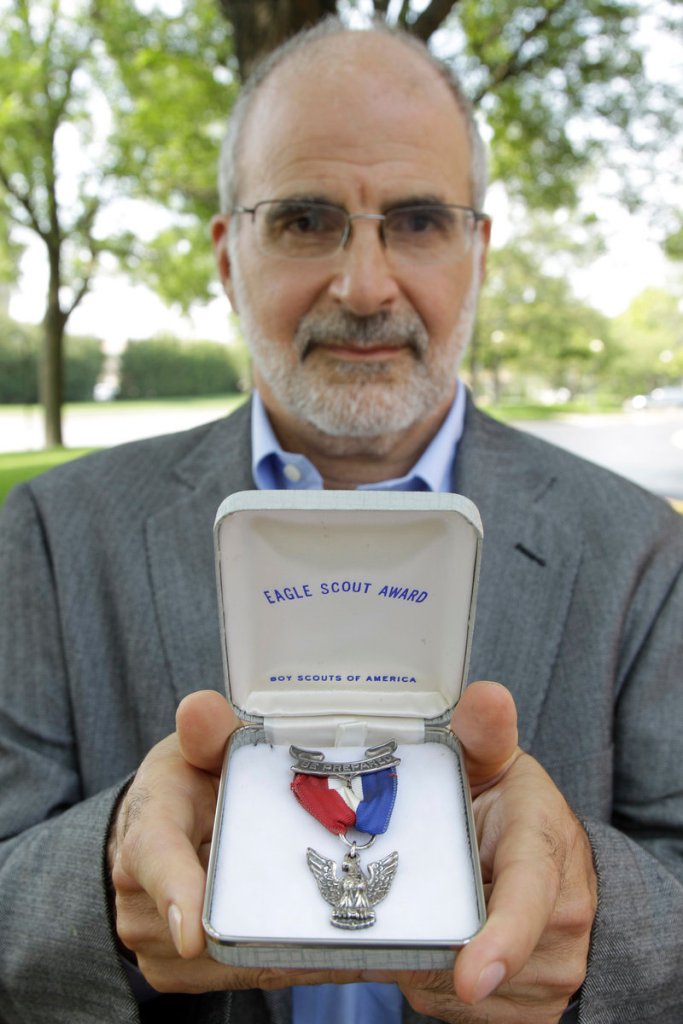NEW YORK – For the physician in Illinois, the attorney in Kentucky, the arts editor in Oregon, their Eagle Scout medals were treasured reminders of youthful achievement. Yet each is parting with his medal out of dismay over the Boy Scouts’ recently reaffirmed policy of excluding gays.
“I can no longer maintain any connection to an organization which actively promotes such a bigoted and misguided policy,” Dr. Robert Wise of Chicago wrote to Scout headquarters in Texas. “To that end, I am interested in removing all evidence that I was ever a Scout.”
Wise, 59, is among several dozen former Eagle Scouts who have taken such steps following the July 17 announcement that the Boy Scouts of America, after a confidential two-year review, were sticking with the divisive, long-standing policy of excluding openly gay youth and adults as members and leaders.
Another protester is attorney Jackson Cooper, 32, a former senior patrol leader of Troop 342 in his hometown of Louisville, Ky. In an open letter, he said he was unsure if any of his fellow Scouts were gay.
“But I do know that my now deceased mother, a lesbian, would not have been allowed to serve as a den mother if her orientation had been public knowledge,” he wrote. “The thought that I have invested such a large part of my life with an organization that would have turned my own mother away breaks my heart.”
Deron Smith, the Boy Scouts’ national spokesman, said there was no official count at his office of how many medals had been returned. He also noted that about 50,000 of the medals are awarded each year.
“We’re naturally disappointed when someone decides to return a medal because of this single policy,” he said. “We respect their right to express their opinion.”
Beyond the Eagle Scout protests, the Boy Scouts’ reaffirmation of the no-gays policy has drawn condemnation from liberal advocacy groups, newspaper editorialists and others. In Washington state, Republican gubernatorial candidate Rob McKenna, an Eagle Scout, joined his Democratic opponent, Jay Inslee, in suggesting the policy be changed.
But overall there has been little evidence of any new form of outside pressure that might prompt the Scouts to reconsider.
The leadership of the Scouts’ most influential religious partners — notably the Mormons, Roman Catholics and Southern Baptists — appears to support the policy. And even liberal politicians seem reluctant to press the issue amid a tense national election campaign.
For example, President Obama has made no public statement thus far about the Scouts’ policy — a notable void given that he is a staunch supporter of gay rights and also, like all presidents of the past 100 years, is the Boy Scouts’ honorary president.
The White House press office declined comment on the matter.
“People are reluctant to force him to take sides,” said Richard Socarides, a former Clinton White House adviser on gay rights. “Everybody knows what side he’s on anyway.”
In contrast to Obama, Republican candidate Mitt Romney does have a public position on the Scouts’ policy — he politely disagrees with it.
Send questions/comments to the editors.


